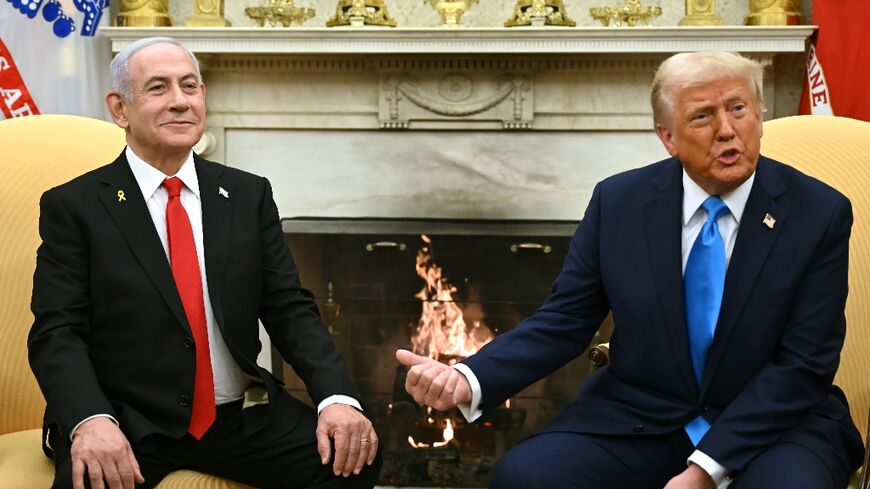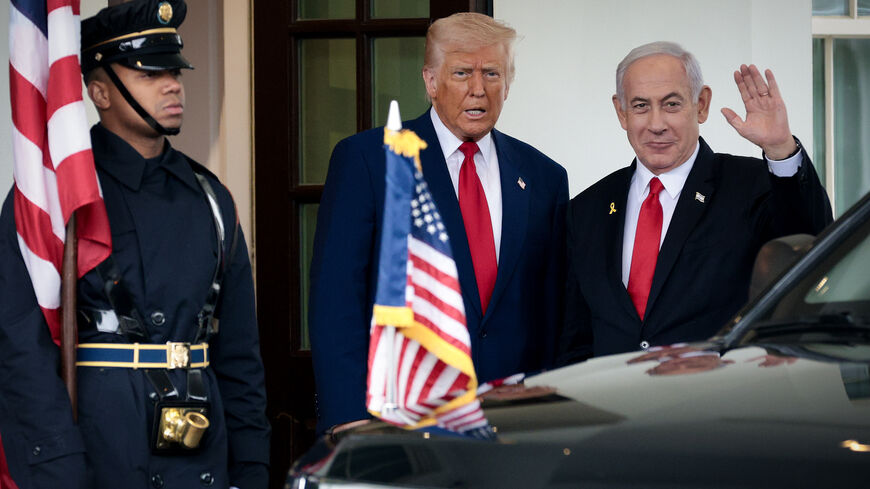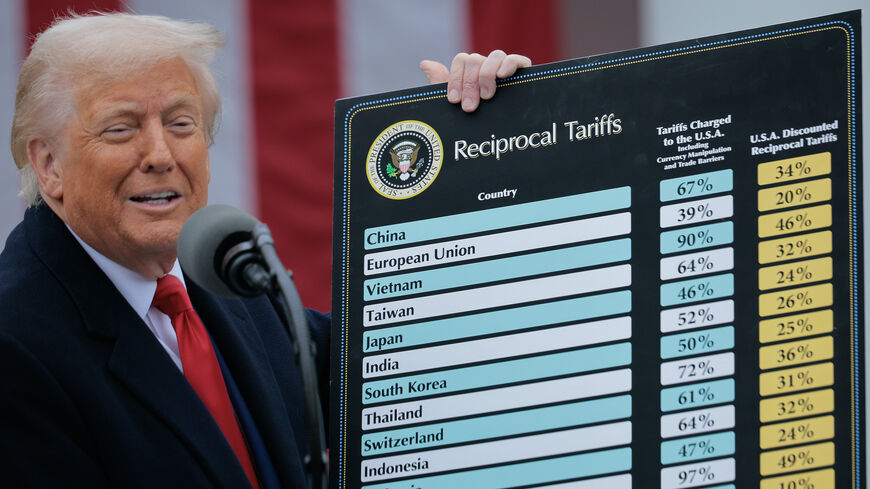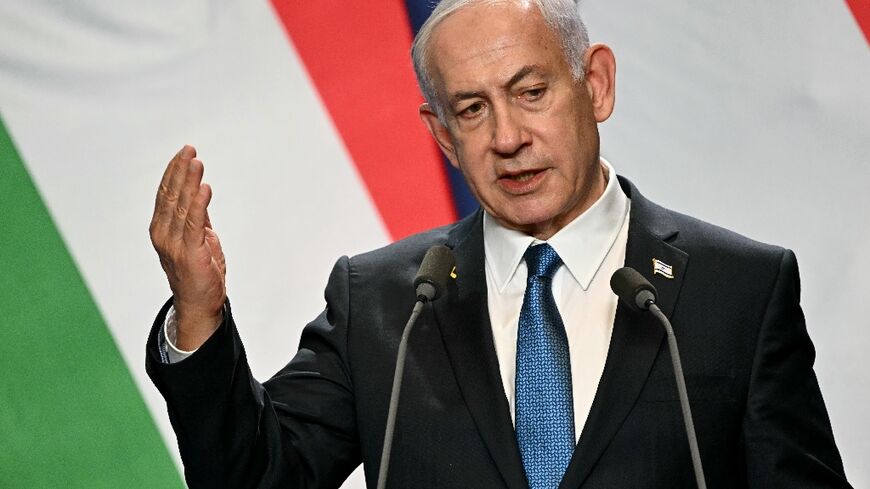Netanyahu set to meet Trump amid differences over Iran, tariffs and Turkey: What to know
In a surprise move, the US president invited the Israeli prime minister to Washington at short notice to discuss his recent tariff decision, the Iranian file and other issues.
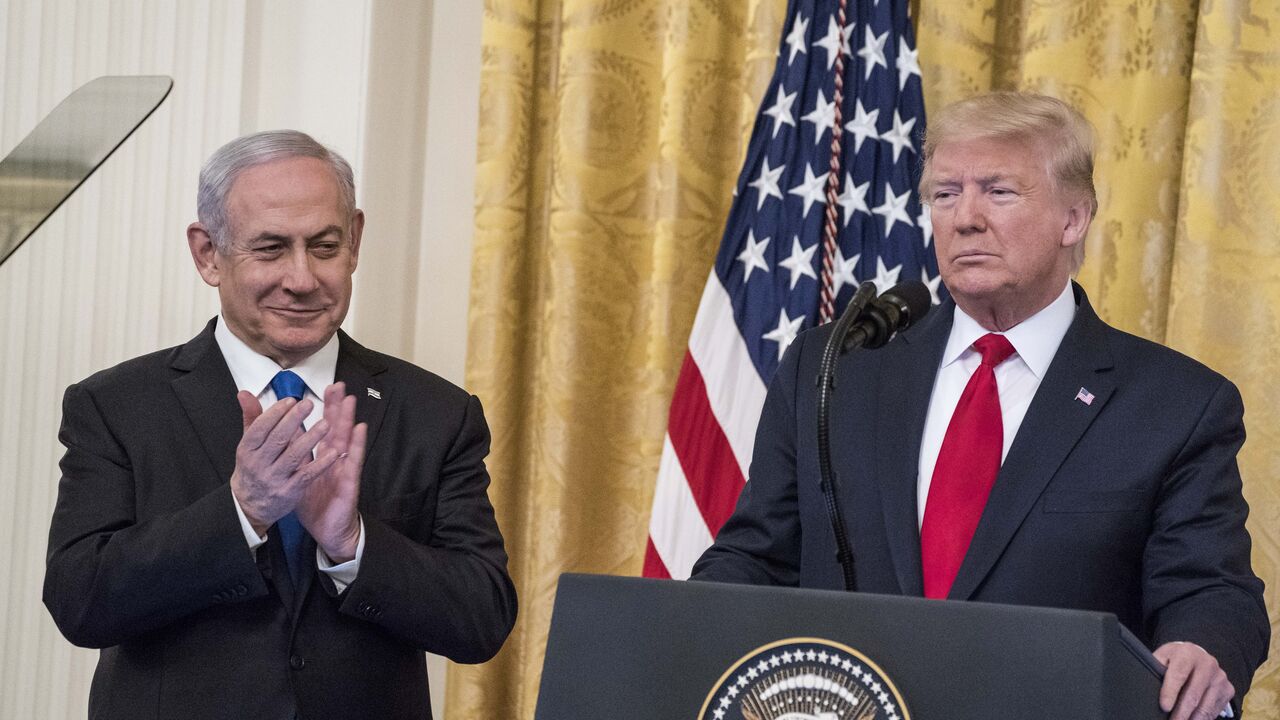
Israel's Prime Minister Benjamin Netanyahu is set to meet Monday at the White House with President Donald Trump to discuss the American decision to impose 17% tariffs on Israeli imported goods.
Netanyahu will be the first foreign leader to meet twice with the president at the White House since Trump's inauguration in January.
A statement issued by the Israeli prime minister's office Saturday night said, “Tariffs, efforts to release our hostages held in Gaza, Israel-Turkey relations, the Iranian threat and the battle against the International Criminal Court in The Hague” will top the agenda.
The statement continued that Netanyahu “appreciates the personal and warm relationship with President Trump, and thanks him for inviting him to be the first leader to meet with him after the imposition of global tariffs, just as he was also the first leader to meet with him after entering the White House.”
The one-day visit comes as Netanyahu faces legal proceedings in Israel. His office requested that the Jerusalem District Court postpone his expected appearances on Monday and Wednesday due to his trip to Washington. The court agreed to cancel the Monday session but not the one scheduled for Wednesday. Netanyahu is expected to leave Washington on Monday night.
Israel stunned by tariff decision
Israel’s political and economic leadership was stunned on Wednesday when Trump included the country on a list of nations hit with higher tariffs on exports to the United States. The 17% tariff on Israeli goods stands higher than the 10% baseline imposed on the majority of US partners in the Middle East. It came just a day after Finance Minister Bezalel Smotrich announced the removal of all tariffs on US products. Smotrich had hoped the gesture would shield Israel from any new US tariffs — but it failed to do so.
The United States is Israel’s largest trading partner. Israel’s exports to the United States, which include diamonds, machinery, optical devices, medicine, pharmaceuticals and electronic equipment, amounted in 2024 to more than $22 billion. The trade deficit amounted to about $7.4 billion.
Finance Ministry Chief Economist Shmuel Abramzon said Thursday that Israel will negotiate with the White House to cancel or ease the imposed tariffs. “We knew that this was going to happen, but we are surprised about the scope of the tariff and are still learning the implications,” said Abramzon. “We have a good channel with the US administration, and I believe that through dialogue and negotiations, we will succeed in mitigating some of the severity of the decree.”
According to Ynet, while on a visit to Budapest this weekend, Netanyahu and Hungarian Prime Minister Viktor Orban spoke by phone with Trump. During the trilateral conversation, the issue of tariffs came up. Trump suggested to Netanyahu that he come to Washington to discuss the matter. According to the report, Netanyahu’s office proposed several alternative dates during the upcoming Passover holiday, but Trump’s team insisted on a meeting this Monday. As a result, Netanyahu decided to travel directly to Washington from Budapest, instead of returning to Israel after his four-day visit to Hungary.
Other issues on the agenda
Iran: Israel and the United States held strategic consultations on Iran at the end of March. Trump sent a letter in mid-March to Iran’s Supreme Leader Ayatollah Ali Khamenei, urging Tehran to enter direct negotiations over its nuclear program while setting a two-month deadline to reach a new agreement. Iran responded with an offer to launch indirect talks — an approach the United States appears inclined to accept. Strategic Affairs Minister Ron Dermer traveled to Washington with an Israeli delegation to discuss these developments amid concerns in Israel that the White House might rush into these negotiations.
Hostage release efforts: Thousands of Israelis demonstrated across the country on Saturday night, calling on the Netanyahu government to reach a deal with Hamas for the release of hostages still held in the Gaza Strip. The ceasefire agreement between Israel and Hamas collapsed after the first 42-day phase, during which 33 Israeli hostages were released. Israel has since declared it will not maintain a ceasefire during negotiations, insisting it will not end the war in Gaza until Hamas is defeated and all the remaining 59 hostages are released. Hamas, meanwhile, has rejected a proposal by US special envoy Steve Witkoff to extend the first phase of the deal, which would have included a temporary ceasefire and the release of 11 additional Israeli hostages.
Israel-Turkey relations: Since the fall of the Assad regime last December, Israeli leaders have warned against Turkish support for militant groups operating in Syria's border regions. Last week, Israel struck Syrian military sites in Homs, Hama and Damascus. According to Middle East Eye, Turkey has plans to deploy forces at the T4 air base and Palmyra military airport in Syria’s Homs province. Turkish Foreign Minister Hakan Fidan said Friday that Ankara seeks no confrontation with Israel in Syria, but warned that repeated Israeli strikes on military facilities are weakening the new Syrian government’s ability to deter threats, including from the Islamic State.
THAAD battery to Israel?
The Saudi-owned channel Al-Hadath reported Saturday that Washington delivered a second advanced THAAD air defense battery to Israel this week, along with two additional Patriot batteries. The first THAAD system arrived in Israel last October, accompanied by a team of American instructors. The latest deployment comes amid ongoing US strikes against the Houthis in Yemen and discussions between Israel and the United States over the possibility of a strike on Iranian nuclear facilities.

